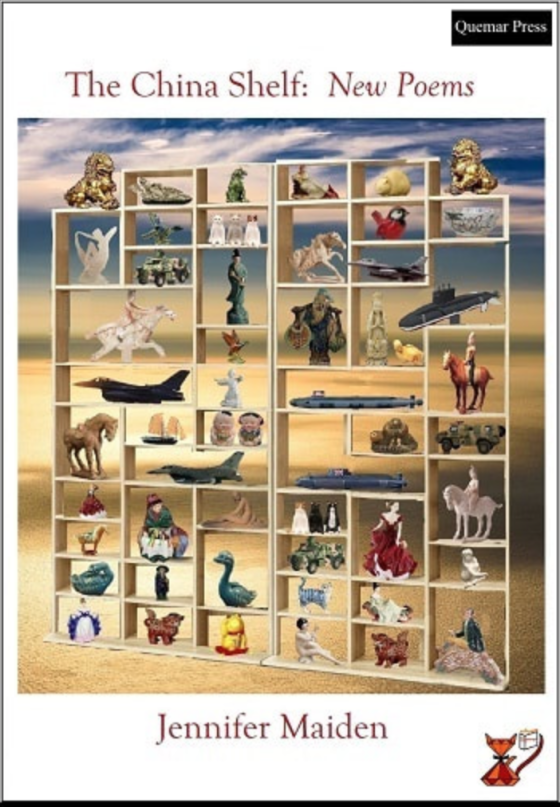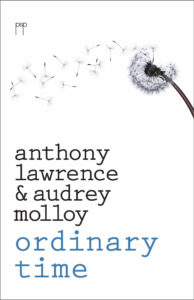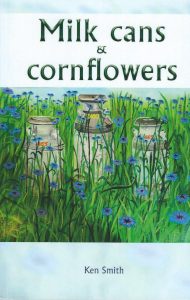 In Monkey Wars Deborah Blum walks us through the battle-field between animal researchers and animal rights activists and asks how much suffering is worth how much knowledge. Written in 1994 the book still holds up today, just as books written on politics or religion still do, as deep moral questions don’t tend to evaporate away.
In Monkey Wars Deborah Blum walks us through the battle-field between animal researchers and animal rights activists and asks how much suffering is worth how much knowledge. Written in 1994 the book still holds up today, just as books written on politics or religion still do, as deep moral questions don’t tend to evaporate away.
A review of Nightfall Marginalia by Sarah Maclay
 Everything is fragile, tenuous, in this world. It’s not threatening or frightening; indeed, a kind of vast resignation suffuses the scene. As the title of the collection, Nightfall Marginalia, suggests, the predominant atmosphere throughout is dusky, dark, and the principal mood is the nocturne – dreamy, romantic.
Everything is fragile, tenuous, in this world. It’s not threatening or frightening; indeed, a kind of vast resignation suffuses the scene. As the title of the collection, Nightfall Marginalia, suggests, the predominant atmosphere throughout is dusky, dark, and the principal mood is the nocturne – dreamy, romantic.
A review of Perfume by Patrick Süskind
 Süskind’s dark taste in comedy and clever use of logic permeate every page. Jean-Baptiste’s skill as a perfumer making camouflage, shadowing and eventually murder all possible with a few drops of a home-made fragrance. Like all superhero films or books one fantasises of having said superpower and the fantastical, god-like things one could do with it.
Süskind’s dark taste in comedy and clever use of logic permeate every page. Jean-Baptiste’s skill as a perfumer making camouflage, shadowing and eventually murder all possible with a few drops of a home-made fragrance. Like all superhero films or books one fantasises of having said superpower and the fantastical, god-like things one could do with it.
A review of The China Shelf: New Poems by Jennifer Maiden
 There are no notes or glossary, but neither is the book polemical. You are free to make your own conclusions from what comes across essentially, at least to my ignorant mind, as poetic play—full of irreverence and an open sense that we are all pawns in the global power play, and that no matter how powerful these world figures are – whether they be actors, writers, or politicians, it behooves us to pay attention and use our imaginations to engage.
There are no notes or glossary, but neither is the book polemical. You are free to make your own conclusions from what comes across essentially, at least to my ignorant mind, as poetic play—full of irreverence and an open sense that we are all pawns in the global power play, and that no matter how powerful these world figures are – whether they be actors, writers, or politicians, it behooves us to pay attention and use our imaginations to engage.
Books to Help You Cultivate Inner Calmness through Mindfulness and Faith
Reading is a wonderful way to cultivate inner calmness and expand your understanding of mindfulness and faith. Books can offer valuable insights, practical guidance, and inspiring stories that can support you on your journey toward inner peace.
A review of Ordinary Time by Audrey Molloy and Anthony Lawrence
 One poet has a ‘time travel machine’ which takes him/her through past and present the other poet writes ethereal intense beautiful words. As I read each poem my mind struggled trying to decide who is he and who is she. I read a few lines and decided, yes this was written by Lawrence, then I read a few more lines and I decided no it was written by Molloy. Finally, I gave up and decided that beautiful poetry does not need a ‘gender’.
One poet has a ‘time travel machine’ which takes him/her through past and present the other poet writes ethereal intense beautiful words. As I read each poem my mind struggled trying to decide who is he and who is she. I read a few lines and decided, yes this was written by Lawrence, then I read a few more lines and I decided no it was written by Molloy. Finally, I gave up and decided that beautiful poetry does not need a ‘gender’.
A review of Fugitive by Simon Tedeschi
 Fugitive is a moving and thought-provoking book. It is pithy and at times, funny, full of minor transgressions, extensive scholarship, music and yes, poetry. There is so much compacted into each of these small pieces and yet Fugitives is airy, with enough space to encompass contradiction, breath and above all, silence, another recurring theme.
Fugitive is a moving and thought-provoking book. It is pithy and at times, funny, full of minor transgressions, extensive scholarship, music and yes, poetry. There is so much compacted into each of these small pieces and yet Fugitives is airy, with enough space to encompass contradiction, breath and above all, silence, another recurring theme.
A review of Milk cans & cornflowers by Ken Smith
 The poems in Ken Smith’s collection, Milk cans & cornflowers, show a love of language that rises above workmanlike prose. The author lets readers experience walks along the St. Lawrence River; shares some of his past, points out striking objects or phenomena, and acknowledges the importance of family, including the “family” of great poets and writers of the past.
The poems in Ken Smith’s collection, Milk cans & cornflowers, show a love of language that rises above workmanlike prose. The author lets readers experience walks along the St. Lawrence River; shares some of his past, points out striking objects or phenomena, and acknowledges the importance of family, including the “family” of great poets and writers of the past.
A review of Earlier by Sasha Frere-Jones
 I also really wished that that was going to create a clearing in the critical discourse in which I could discuss the Situationists, among other Francophile souvenirs I’ve collected over the years. Afterall, “Greil Marcus, Lipstick Traces” is the last bit of language on the back cover. Possibility of a backdoor?
I also really wished that that was going to create a clearing in the critical discourse in which I could discuss the Situationists, among other Francophile souvenirs I’ve collected over the years. Afterall, “Greil Marcus, Lipstick Traces” is the last bit of language on the back cover. Possibility of a backdoor?
A review of Strange Meadowlark by Michael Simms
 The music of the poems is suffused by a nuance of idiosyncrasies that leaves one having to learn how to read them, stopping and starting occasionally. But these reveal themselves as integral to the themes. For instance, there’s a conspicuous absence of periods.
The music of the poems is suffused by a nuance of idiosyncrasies that leaves one having to learn how to read them, stopping and starting occasionally. But these reveal themselves as integral to the themes. For instance, there’s a conspicuous absence of periods.